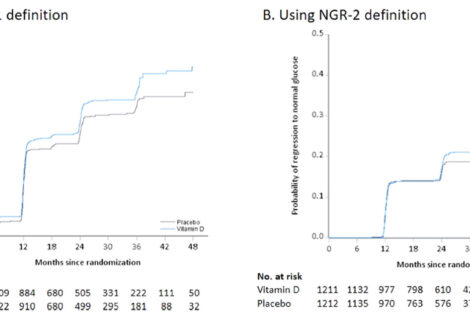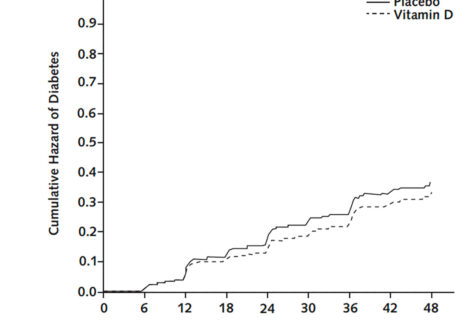This post-hoc analysis in the D2d study aimed to determine whether the effect of vitamin D on diabetes prevention differs among people of color and those with overweight/obesity (who have higher diabetes risk) compared with individuals who are White or have normal weight.
We found that, among people with prediabetes, particularly for Black and White race groups and those with BMI < 40 kg/m2, the optimal blood 25(OH)Dconcentration should be greater than 40 ng/mL to optimize diabetes-prevention efforts.
Our findings suggest that the optimal blood 25(OH)D level for diabetes prevention may be higher than currently accepted “sufficient” levels for the general healthy population; that the “optimal” dose of vitamin D may need to be tailored to achieve this optimal 25(OH)D level; and that the “optimal” dose of vitamin D supplementation may be higher than the conventionally recommended daily allowances, particularly for some higher-risk populations, if the goal is diabetes prevention.
The manuscript is published in the American Journal of Clinical Nutrition.

















